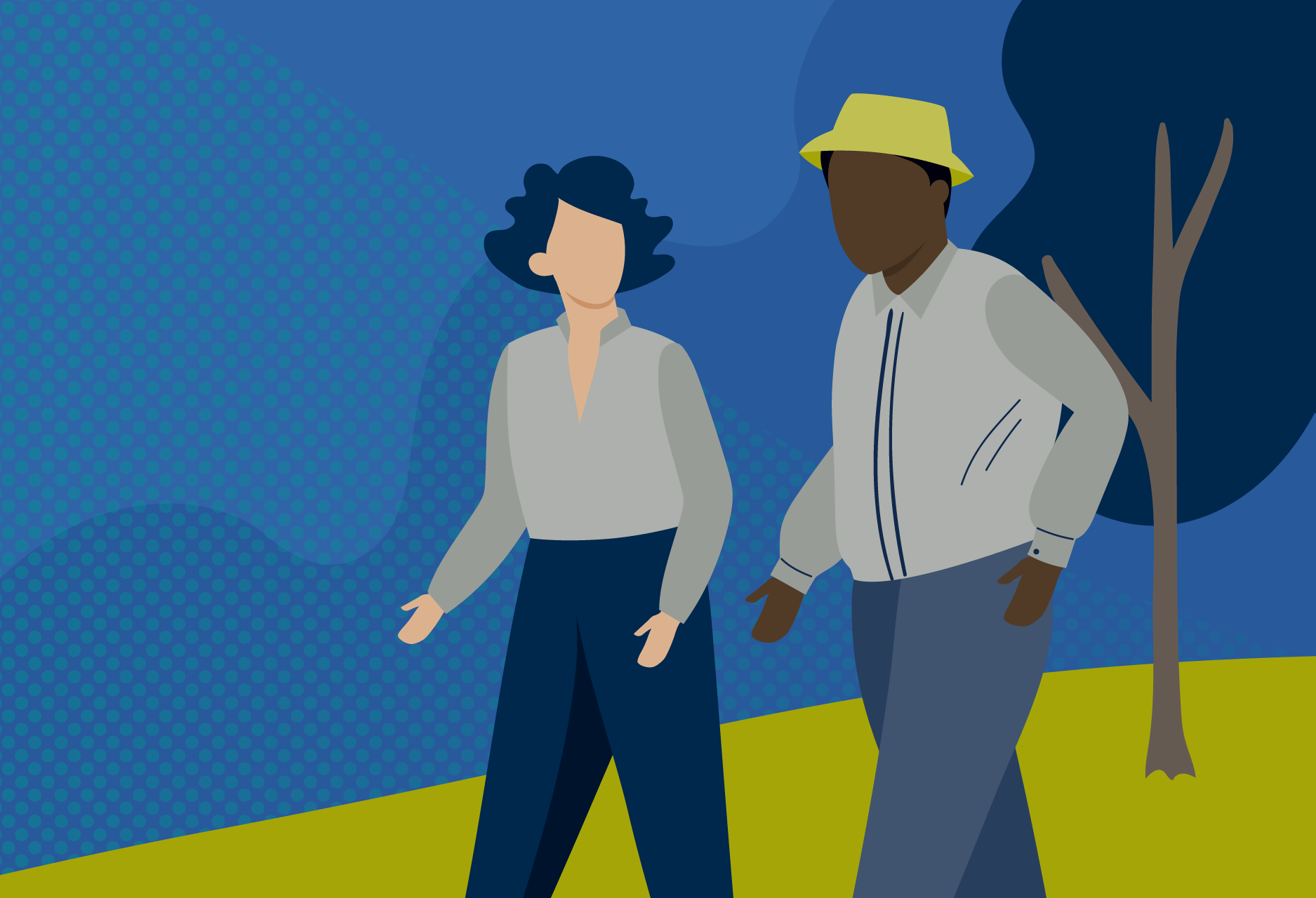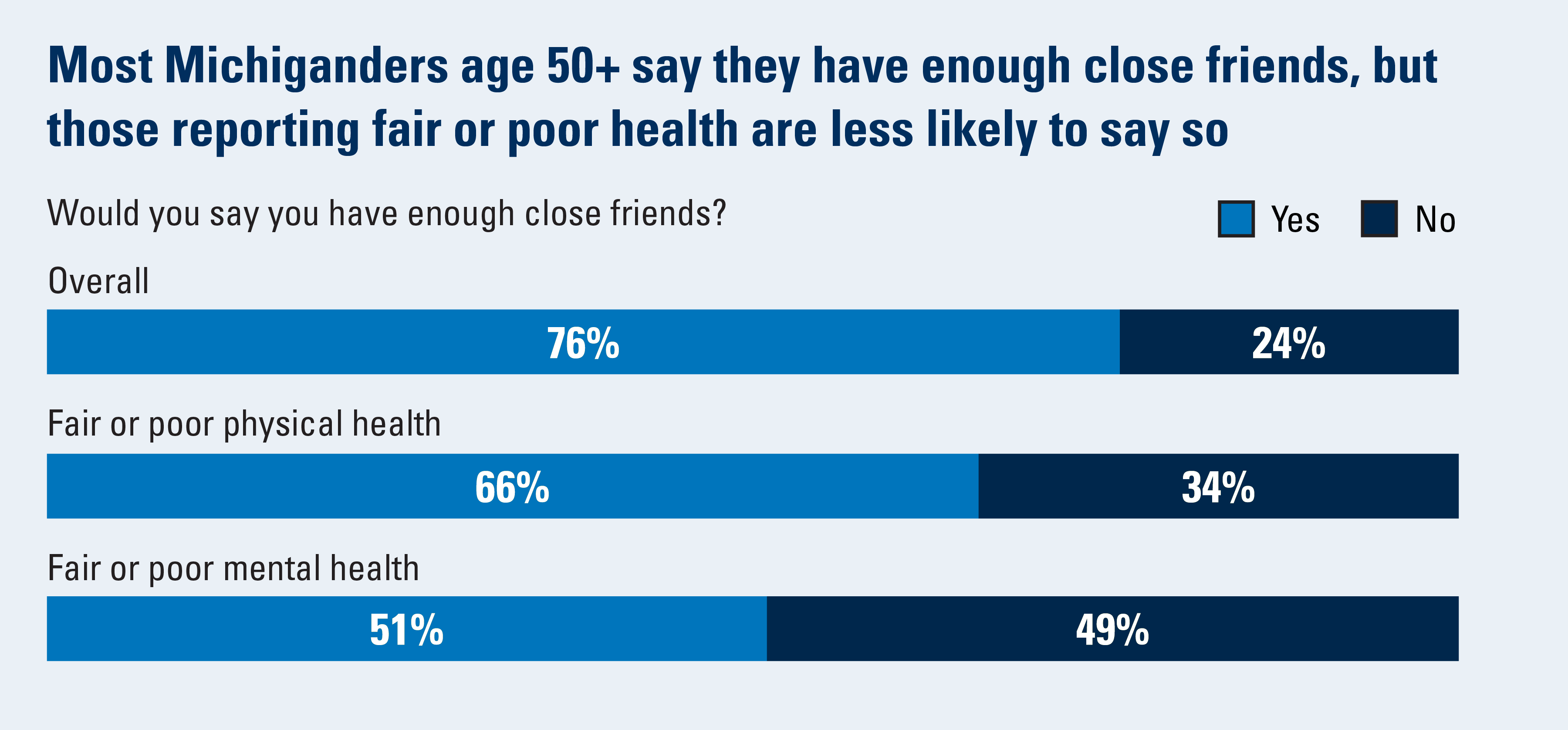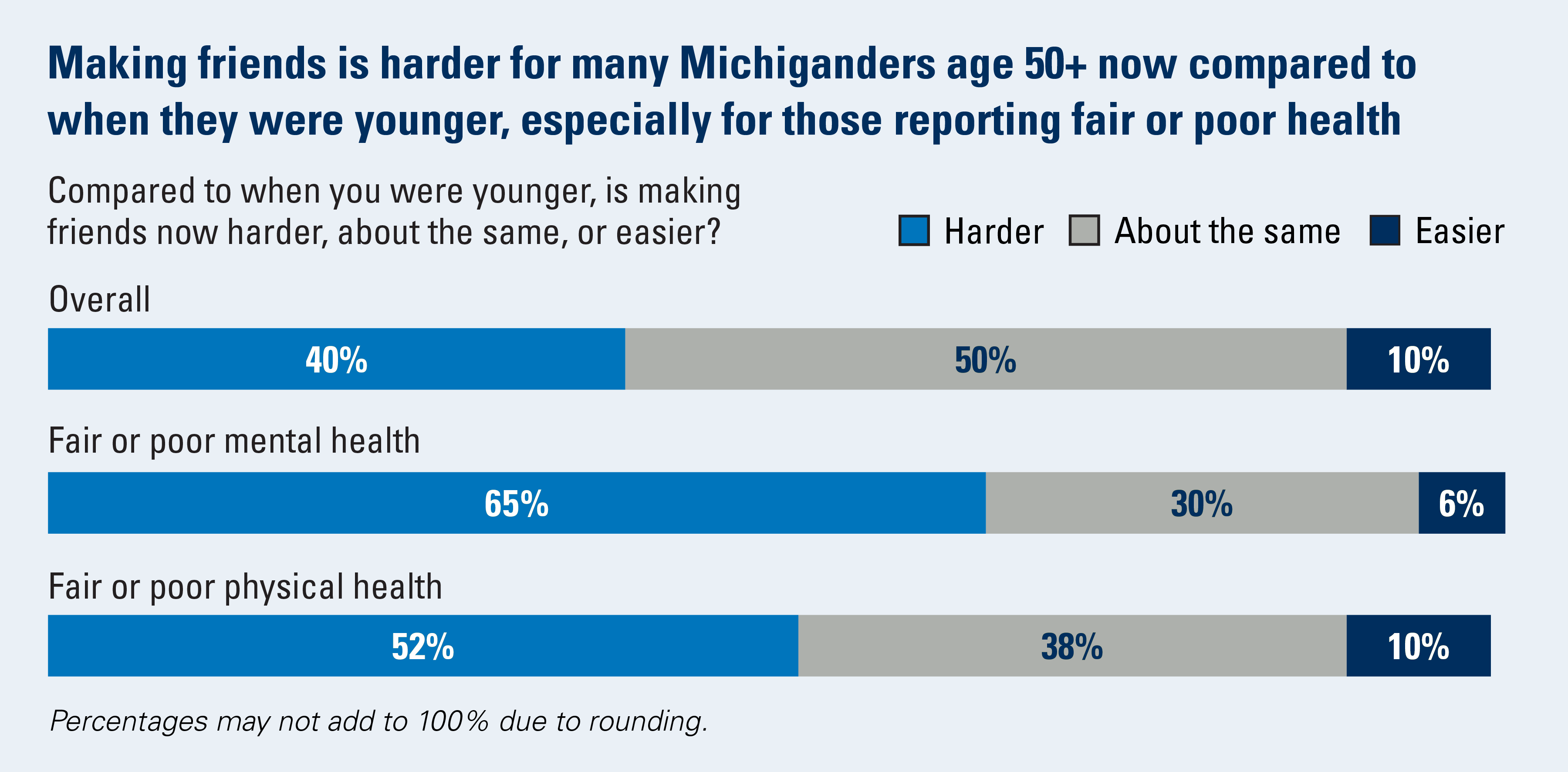
Key Findings
- 88% of Michiganders age 50 and older have at least one close friend.
- Overall, 24% said they do not have enough close friends; among older adults who described their mental health as fair or poor, 49% said they do not have enough close friends.
- Older adults in Michigan without any close friends were more likely to feel isolated or a lack of companionship some of the time or often in the past year, compared with those who have at least one close friend.
- 76% of those with a close friend(s) said they can definitely count on them to provide emotional support in good times or bad.
As another Michigan winter rolls in, older adults across both peninsulas have started to hunker down against the cold – which can also increase their chance of isolation. A new University of Michigan poll suggests they should make extra effort to connect with close friends, either virtually or in person, especially if they live with physical or mental health challenges. The Michigan-specific findings, from the Michigan Poll on Healthy Aging based at the University of Michigan Institute for Healthcare Policy and Innovation, echo the findings of a new national poll on the same topic.
Both polls show the key role that close friends play in the lives and well-being of adults aged 50 and older, and the added challenges faced by those who rate their physical health or mental health as fair or poor.
While most Michiganders aged 50 and over say they have at least one close friend, 12% do not. And the percentage who said they have no close friends was much higher among those experiencing fair or poor mental health (26%) or fair or poor physical health (19%).
Similarly, older adults who said they do not have any close friends were more likely to feel isolated or a lack of companionship at least some of the time in the past year, compared with those who have at least one close friend.
Nearly a quarter of all older Michiganders (24%) said they do not have enough close friends, and there were differences by health status. The percentage who said they don’t have enough close friends was twice as high among older adults who described their mental health as fair or poor (49%) and was also higher than the overall percentage among those with fair or poor physical health, at 34%.

Michiganders’ poll responses are available on an interactive data dashboard, which also allows users to compare data from Michigan with data from the rest of the country. Find that tool at https://michmed.org/4eGeJ.
The poll is funded by the Michigan Health Endowment Fund and Michigan Medicine, U-M’s academic medical center.
“These findings suggest a real opportunity for Michigan’s older adults, and the nonprofit and municipal organizations designed to support them, to try to maintain close friendships and cultivate new ones year-round,” said Sarah Patterson, Ph.D., the U-M demographer who worked with the poll team on the new survey. “Now’s the time to connect with friends during the holidays, but also to make a plan to stay in touch during the winter months.” Patterson is a research assistant professor at the U-M Institute for Social Research, in the Survey Research Center, and a member of IHPI.
Older Michiganders who do have close friends said they rely on them for many health-related reasons, the poll shows. Many Michiganders aged 50 and older said they had received health-related support, encouragement and motivation from their close friends during the past year.
Among those who have at least one close friend, the majority said they can definitely count on their close friend or friends to provide emotional support in good times or bad (76%) or provide support if they need to discuss their health (67%).
High percentages of older Michiganders said their close friends have encouraged them to make healthy choices. That includes getting more exercise or eating a healthier diet (49%), getting a symptom or health issue checked out by a health care provider (38%), and curbing unhealthy behaviors such as eating unhealthy foods or drinking too much (30%).
Many older Michiganders with close friends also said their friends had helped them when they were sick or injured (34%), picked up medication for them (21%) or attended their medical appointments (17%).
“We know that Michiganders as a whole, and older Michiganders especially, have more risk factors for serious health conditions than other Americans, including obesity, tobacco use, low rates of physical activity, and high rates of chronic conditions,” said poll director Jeffrey Kullgren, M.D., M.P.H., M.S., a primary care physician at the VA Ann Arbor Healthcare System and associate professor of internal medicine at U-M. “Any help that Michiganders over 50 can get from their close friends to support and improve their health and well-being and stay on track with taking medication and getting care, will go a long way.”
Kullgren also recommends older adults make an effort to reach out to close friends often, especially during the winter. Almost a quarter of poll respondents aged 50 and older (22%) are in contact with their close friends daily or almost daily, and 44% touch base at least once a week, but 34% only connect once or twice a month or less.

Although 75% of Michiganders aged 50 and older rated their amount of contact with close friends as “about right,” 25% said they would like more contact with their close friends. Older adults who said they are in fair or poor mental health were more likely to want more contact with their close friends than those who described their health as excellent, very good, or good (43% vs. 22%). Physical health status showed a similar trend (35% vs. 22%).
The poll findings come from a nationally represented survey conducted by NORC at the University of Chicago for IHPI and administered online and via phone in August 2024 among 1,175 Michigan older adults and 3,137 non-Michigan adults ages 50 - 94. The samples were subsequently weighted to reflect the Michigan and U.S. populations.
Read past National Poll on Healthy Aging reports and about the poll methodology.